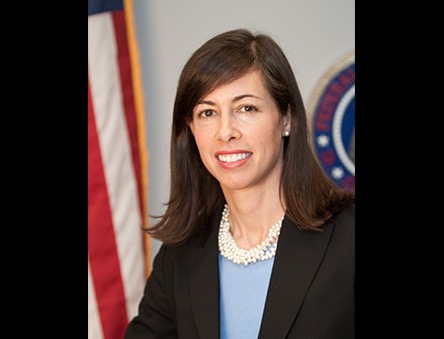Public Knowledge Probes Unseating Officials

The smarter way to stay on top of broadcasting and cable industry. Sign up below
You are now subscribed
Your newsletter sign-up was successful
According to multiple sources familiar with the communication, Gene Kimmelman, president of Public Knowledge, emailed some folks in the public interest community asking about the mechanics of launching a “We the People” petition urging the White House to withdraw a nomination, and asking whether there was any precedent for that.
Those sources, who had seen a copy of the two-line email, concluded it related to the re-nomination of Democratic commissioner Jessica Rosenworcel for another term on the FCC, and was tied to her ongoing issues with FCC chairman Tom Wheeler’s set-top box proposal.
One source said that while they favored set-top competition and untethering subs from the monthly lease fee—with the FCC’s proposal seeming to be the best chance in a couple of decades for public interest groups to achieve that consumer-friendly goal—targeting Rosenworcel’s re-nomination seemed a disproportionate response to the perceived offense.
Regardless, Public Knowledge has been taking aim at opponents and questioners of the plan.
Kimmelman would not address the email specifically, which did not mention any nominees by name, but said he was making a general inquiry—not targeted to anyone—into how such petitions worked.
A Capitol Hill source said some of Public Knowledge’s allies had assumed the email was targeting Rosenworcel, given how strongly the group has been pushing back on critics of the plan, including Democrats.
“Sorry for the confusion, but I’ve been gathering information in preparation for the next administration,” Kimmelman said, “which could include asking current officeholders to make way for new people,” he told B&C. “That includes the Copyright Office—we have many beefs with them. It could ultimately include others, but Copyright has been our immediate focus.…I’ve been asking what mechanisms there may be once an administration nominated—whether confirmed or not—to reconsider or once leaving office to ask current officeholders to step down, or withdraw their support,” he said. “My main focus has been the Copyright Office, but in general about what we do about people who are not serving the public interest.”
The smarter way to stay on top of broadcasting and cable industry. Sign up below
One source in the public interest community said that a Copyright Office focus would make more sense than going after a sitting FCC commissioner.
“We are considering a variety of approaches to restructuring that [Copyright] Office and bringing in less biased leadership, including tools like a grassroots petition,” Kimmelman said. Of course, one of those “beefs” was with the Copyright Office’s position on the FCC’s set-top proposal.
Rosenworcel’s re-nomination has been a hot topic of late. A Senate confirmation vote has been held up by Senate Majority Leader Mitch McConnell, who ranking member Harry Reid called out in a stinging floor speech for breaking an agreement the Dems had that they would approve Michael O’Rielly as GOP commissioner on a stand-alone basis so long as Rosenworcel would get her vote separately, which has not happened.
Big Wheeler Dealer
Public Knowledge is a big backer of Wheeler’s effort to create set-top box competition and easier access to online content alongside traditional fare as a way to boost the attractiveness of leased-box alternatives.
While the group has been pushing hard for the FCC’s set-top box revamp, Rosenworcel has had issues from the beginning.
She indicated that the first, “unlock the box” proposal had “real flaws” and that “another way forward” was needed.
Multichannel video programming distributors, led by NCTA: The Internet & Television Association, then proposed an app-based alternative. Wheeler’s “another way forward” was to pivot toward that approach, but not sufficiently enough to gain MVPD and studio support due to the inclusion of an app licensing body with FCC oversight.
Rosenworcel two weeks ago said that she didn’t think the FCC should get into licensing and does not believe it has the authority to do so, echoing the concerns of cable operators and Hollywood studios.
Rosenworcel has said all along she is for competition in the set-top market, saying personally and professionally that leased boxes are clunky and expensive. She even voted for the “unlock the box” proposal, even as she said it needed work, and committed to working toward that goal.
The set-top box fight has since morphed into a pitched battle with some prominent Democrats joining Republicans, MVPDs, app developers, studios and most creative unions in calling for the FCC to delay, adjust or rethink the proposal.
Sen. Claire McCaskill (D-Mo.), a harsh critic of the cable industry, declared last week that she had never seen such unanimity against a proposal.
Kimmelman has been talking about the pressures from the industry on the FCC and White House to delay a vote, which also led some to conclude his email might be targeted to Rosenworcel.
In a blog post Sept. 16, Kimmelman cited the “clever political strategies” the powerful cable and Hollywood interests were employing to block the public interest. “Why would cable and Hollywood repeatedly call for a delay? Because then any FCC commissioners still debating the merits won’t have to risk voting to anger the cable monopolies or Hollywood giants,” he said.
“My blog was designed to show many of the industry-sponsored delay tactics designed to prevent a vote,” said Kimmelman. He said that he is not sure where Rosenworcel will come down, but added: “I have every expectation that she will vote to prevent the ongoing price gouging of consumers through today’s outrageous set-top box prices.”
Contributing editor John Eggerton has been an editor and/or writer on media regulation, legislation and policy for over four decades, including covering the FCC, FTC, Congress, the major media trade associations, and the federal courts. In addition to Multichannel News and Broadcasting + Cable, his work has appeared in Radio World, TV Technology, TV Fax, This Week in Consumer Electronics, Variety and the Encyclopedia Britannica.

